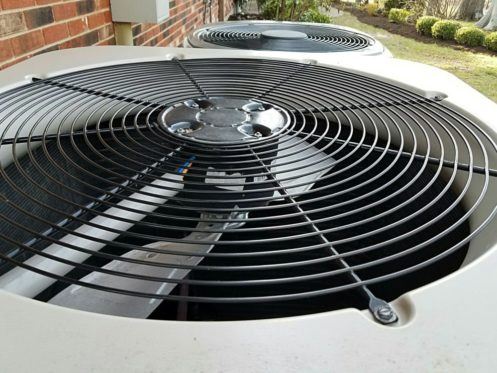Whether you’re trying to stay cool over the summer or warm over the winter, your HVAC system plays an incredibly important role. However, just like other parts of your home, it won’t last forever but will eventually need replacing. Discover what’s included in your HVAC system, how long it should last, what causes it to fail early, and the signs that it’s time for a replacement.
General Rule of Thumb
Your HVAC system includes your heating, generally a furnace, your air conditioner, the ductwork, and your thermostat. There’s also an air handler that includes the circulating fan, but in many homes, that’s built into the furnace.
If you’re looking at your system as a whole and wondering how long it’ll last, the answer is a broad 10 to 20 years. However, this is an oversimplification of your system. Rather, each part has its own expected lifespan, some at the lower end of that range, with others at the higher end.
Causes for Service Life Degradation
Those estimated years of service are based on giving your system the attention it needs. Start by paying attention to your air filter and doing the work to keep it clean. Depending on its size and your air quality, it will need a replacement anywhere from every 30 days to every 9-12 months. Leaving a clogged filter in place puts exceptional strain on the system, reducing its efficiency and increasing its operational wear. If you leave it in place long enough, it will start reducing the system’s service life.
Additionally, your system needs routine maintenance to continue operating at its peak efficiency. This maintenance includes a deep cleaning of your system, tightening mounting hardware and electrical connections, and looking for small problems that you can fix before further damaging your system. Just like your air filter, neglecting regular maintenance wears your system more quickly, shortening the service life.
How Long Does a Furnace Last?
A gas-fueled forced air furnace, which is the common residential furnace, lands at the higher end of the range. When properly maintained, your furnace should last somewhere between about 15 and 20 years.
A furnace beyond this range may still appear to run effectively. However, after that amount of time, the efficiency available on new units will exceed your current unit’s efficiency when it was brand new. Add to that, furnaces lose their efficiency over time due to restricted airflow and wearing parts. By the time your furnace is 20 years old, you’ll be paying more to heat your home just because of its aging.
How Long Does an Air Conditioner Last?
Air conditioners don’t typically last quite as long as furnaces, usually ranging from 10 to 15 years with proper maintenance. Just like furnaces, they’ll become less efficient over time. The primary cause of the decreased efficiency is the compressor losing some of its effectiveness, combined with small leaks that develop over time.
How Long Does a Heat Pump Last?
Heat pumps offer both cooling and heating from a single unit, reducing the need for individual units. From an operational perspective, they work just like an air conditioner, using a refrigerant to transfer heat out of and into your home. Because they work year-round, they tend to have a slightly shorter service life than air conditioners, but usually still in the 10 to 12 year range, sometimes extending up to 15 years.
Do Air Ducts Wear Out?
Most air ducts are made from either steel or a combination of fiberglass and plastic. These materials will eventually wear out due to the changes in temperature from the air they handle. Your HVAC system also creates vibration from the circulation fan running, which translates to your ducts. This leads to mounting hardware loosening, causing external damage to the ducts.
Signs You Need to Replace Your System
You’ll notice several signs that you need to replace your system. First, watch for when your energy consumption goes up consistently, with each month higher than the year before. Watch for mounting repairs each year, knowing you’ll see a significant uptick in repairs during the last two years of your system’s service life.
Finally, consider the age, and proactively replace your system when the components reach the end of their service life. Doing this proactively prevents you from being left with a heating or cooling emergency, giving you more options and control over the process.
Anyone looking for trusted heating and cooling services around Frederick have turned to Markool Heating & Cooling since 2016. Our team provides air conditioning and heating installation, maintenance, and repair services together with indoor air quality solutions. Call to schedule your consultation with one of our installation specialists today.






